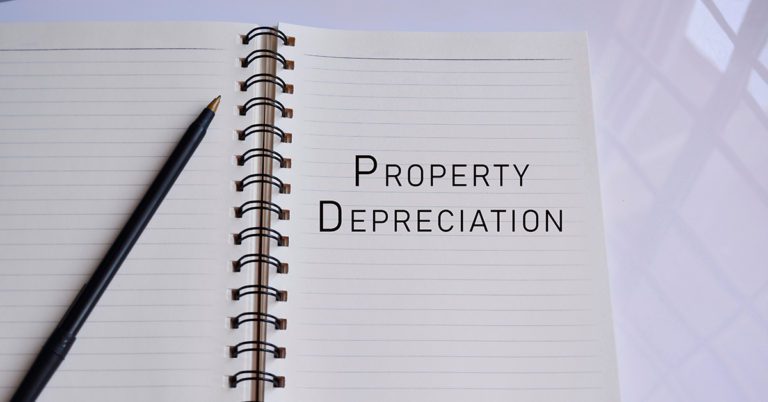What is a depreciation schedule?
To many of us, a depreciation schedule might be a completely alien concept that you’ve never heard of before – don’t worry, you’re definitely not alone here! Aside from the fact that many of us don’t know what a depreciation schedule is, there are so many
property investors who aren’t using one either, which in turn, is losing them thousands of dollars at tax time. Many of us also don’t understand the benefits and rewards we can reap by investing in a depreciation schedule.
In this blog, we will unpack what a depreciation schedule is, who needs one, the benefits of having one and how you can go about getting one.
Do I need a depreciation schedule?
According to
Future Advisory Director, Jason Robinson, a depreciation schedule is “a useful report that itemises the assets that make up a residential or commercial property and provides you with all the available tax depreciation deductions available.”
The Australian Tax Office (ATO) allows property investors, who generate income from their property, to claim the depreciation as a tax deduction because as a building gets older and the items within it age, they depreciate in value.
If you are a property investor, you should be purchasing a tax depreciation schedule around tax time, which Jason advises could “put thousands of extra dollars in your pocket after years end or take thousands of dollars off your tax bill.” DuoTax calls depreciation schedules one of the most effective but underused tools available for property investors to maximise their returns.
Within a depreciation schedule, there are a couple of different aspects to help you maximise your returns, with each depreciation schedule being split into two parts. The first part is called Division 43 – Capital Works Expenditure. This refers to the depreciation of the structure of the building, including things like renovations, extensions, fencing, retaining walls, sheds, etc. The second part is called Division 40 – Plant and Equipment and refers to all of the removable fixtures and fittings throughout the building, such as air conditioning units, carpets, appliances, smoke alarms, etc.
What are the benefits of a tax depreciation schedule?
Now that we understand what a depreciation schedule is, and that it should be used by property investors, it’s time to look at the benefits of using a depreciation schedule.
- Depreciation schedules can significantly reduce your taxable income and therefore reduced tax liability.
- With the positive cash flow due to reduced tax, this often allows clients to fast-track paying down the property or accumulate enough savings for another property.
- Unlocking these yearly savings is often what makes the property affordable for some investors due to the positive cash flow the tax savings creates.
- The cost you pay to get a depreciation schedule is usually tax deductible.
When reading through these benefits, it might seem like a given that investors should get a depreciation schedule. However, some barriers stop people from trying to get one. These include:
- Incorrect or little education about what tax depreciation is.
- They’re unsure what they can claim so it’s often easier to do nothing.
- They don’t understand the benefits of a depreciation schedule and the benefits they can access from getting one.
- They’re unsure if their investment property is eligible for tax depreciation.
- They can’t afford to get one done for them.
- They believe they have missed the opportunity to have one done.
A majority of these barriers all lead back to little knowledge around the subject and is something that can easily be changed through informing and educating investors about what a depreciation schedule is and what they are entitled to.
How do I obtain a depreciation schedule?
The next big question for investors is ‘how do I go about getting one?’ Getting a depreciation schedule done isn’t something you can do yourself online – it requires going to see a quantity surveyor who will ensure that you meet all the requirements set for you by the ATO.
“When it comes to residential and commercial property depreciation schedules, these are best left to professionals who specialise in this field,” Jason says. Capital Claims Tax Depreciation or BMT are the main two depreciation specialists that we see our clients engage with to prepare these reports. The cost of having a report prepared will vary from place to place, however, you can expect to pay anywhere up to $1,000, but investing in one is well worth this cost.
So, now that we’ve covered what a depreciation schedule is and who needs one, we asked Jason if he had any more advice for people who are looking into this further.
“One thing to be careful of and to understand is that claiming depreciation reduces the cost base of your asset,” he advises. “While this shouldn’t stop you from claiming depreciation, as the overall benefits generally outweigh the risk, it’s just something we see clients unprepared for when it comes time to sell the property.”
For example, if you purchase a house for $500,000 and over five years, the depreciation of $50,000 is claimed as tax deductions on your tax return. Let’s say you sell the property five years later for $800,000; the capital gain isn’t $800,000 minus $500,000 (so $300,000) – which a lot of people believe – it’s $800,000 minus $450,000 (so $350,000) as the $50,000 in depreciation claimed comes off the cost base of the property.
Who should I speak with about a depreciation schedule?
Knowing whether you are eligible for a depreciation schedule, or what you may be entitled to in your
investment property may be tricky. If you need advice about whether you should get one or not, get in touch with one of our team members today for tailored
financial advice to your financial situation.







